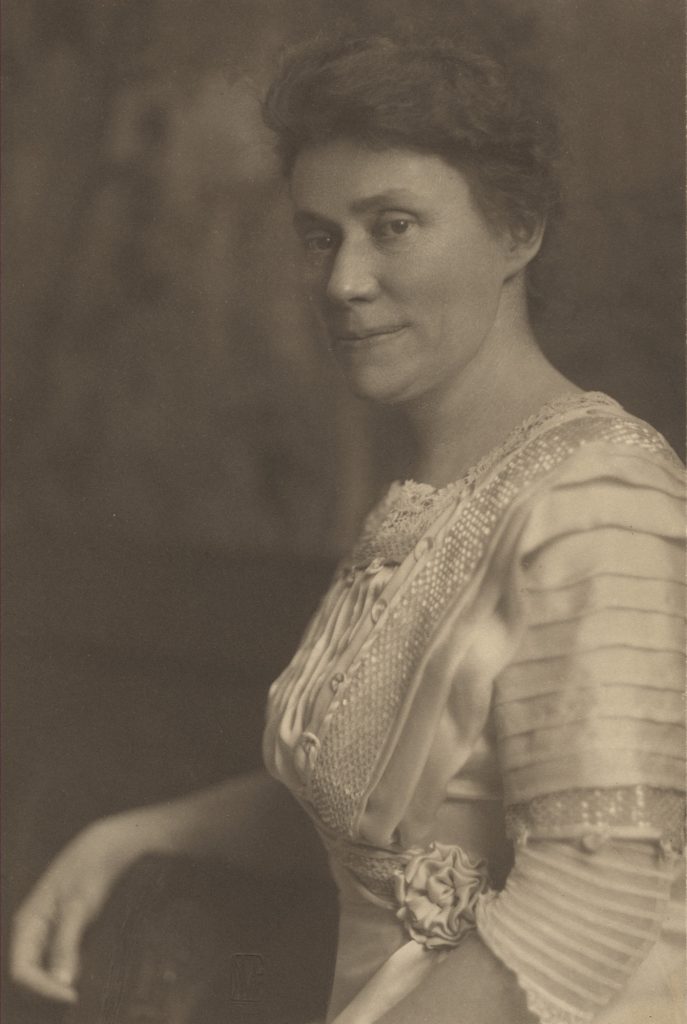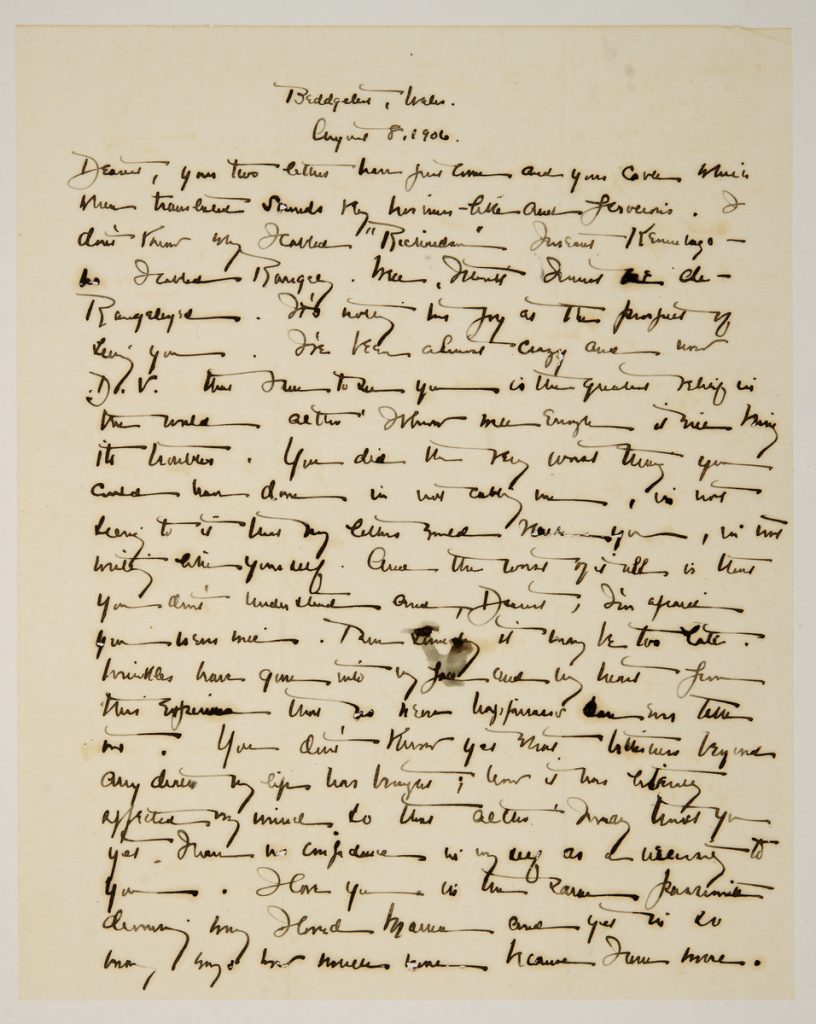Relationship difficulties aside, Woolley and Marks remained a partnership. Marks agreed to live in Pawtucket at the Woolley family home for the summer of 1905, provided that Woolley met a few of her concessions (namely the use of Woolley’s bedroom and breakfast brought to her there daily on a tray).
Marks’ envy of her counterpart’s well-received presence at the College and steadily increasing prestige was palpable through this time. Though she was rising in power and control within her own department, the love for Mary Woolley displayed by students and staff, as well as Wooley’s success with the public sphere and fundraising for the College, made her jealous and uncomfortable. Marks still retained the largest influence over the President and the causes to which Woolley devoted her time and effort. Women’s Suffrage, a cause originally little cared about by Mary Woolley, was one of Marks’ biggest passions at the time.
This led to Mary Woolley’s appearance in public with Susan B. Anthony at a suffrage rally in Baltimore, Maryland in 1906. In the blustery February weather she spoke of suffrage and women’s education as a united effort, remarking that the opposition to suffrage would seem as foolish in the future as those who had opposed women’s right to education seemed then, more than twenty years after she herself had pioneered the movement of women’s acceptance into higher education.
“I am jealous of you: I would kill anyone who tried to harm you. And I could die for you a thousand times over and never know a pang. But I have known neglect, desertion and an ill history…” – Excerpt from this letter, sent by Jeannette Marks to Mary Woolley on August 8, 1906 (Read the full transcription)
Marks left for Wales during the summer of 1906. When Woolley’s father, Chaplain Woolley, took ill and died during the time she was abroad, her letters and sentiments were once again free of any sympathy for Woolley’s condition. The Woolleys had acted as adoptive family to her since their meeting, and Marks’ sorrow over losing both sets of parents she was to ever know made it hard for her to commiserate in sorrow or return to the States to comfort her beloved.
Her confusion and sadness is evident in this letter dated August 8, 1906; in it she speaks of her own past, the emotional turmoil and hardship that has caused her callousness and distance later in life.
“And every once in a while those horrible hours of my girlhood when there was no place for me return with a suspicion that after all you do not, rather cannot love me. There have been times in the last month when waiting for letters that did not come, [?] to show you needed me as you needed me in the past, I could have gladly gone down in a dozen floods.” – Excerpt from this letter, sent by Jeannette Marks to Mary Woolley on August 8, 1906 (Read the full transcription)

